1. Stonecrest, Georgia
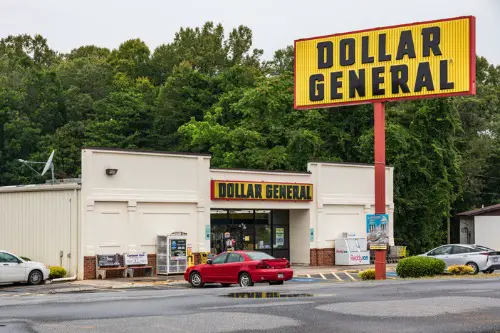
In 2019, Stonecrest became the first U.S. city to impose a complete ban on new dollar stores, aiming to curb the proliferation of chains like Dollar General. The move was driven by concerns over the potential negative impact on local businesses and property values. However, the ban had an unintended consequence: it sparked a surge in interest and support for the very stores it sought to exclude. Residents and nearby communities rallied behind the dollar stores, leading to increased foot traffic and sales.
Despite the ban, the demand for these retailers remained high, prompting the city to reconsider its stance. In 2021, Stonecrest welcomed a Lidl grocery store, a move that was seen as a compromise between supporting local businesses and meeting consumer demand. The presence of Lidl provided residents with a new shopping option while maintaining the city’s commitment to limiting chain stores. The situation highlighted the complexities of regulating retail establishments and the unpredictable nature of consumer behavior.
2. San Francisco, California

San Francisco implemented a “formula retail” ban in 2006, restricting businesses with 11 or more locations worldwide from opening in certain neighborhoods. The intent was to preserve the city’s unique character and support local businesses. However, the policy had the opposite effect: it fueled a sense of exclusivity and desirability around the banned chains. Residents and visitors alike began to view these stores as symbols of rebellion against the city’s regulations.
The allure of the forbidden led to increased demand for locations like Starbucks and Whole Foods, despite their official prohibition. Some businesses found creative ways to circumvent the rules, further intensifying public interest. The situation prompted a reevaluation of the policy’s effectiveness and its impact on local commerce. Ultimately, the city’s experience underscored the challenges of balancing regulation with consumer preferences.
3. Provincetown, Massachusetts
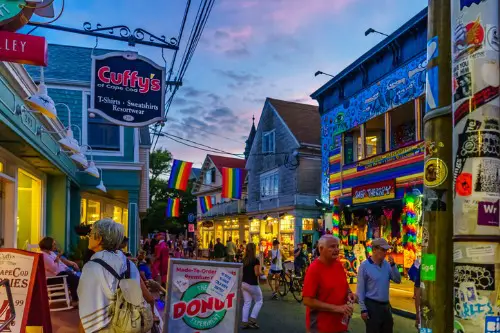
In 2010, Provincetown, a Cape Cod town known for its vibrant arts scene and historic charm, implemented zoning laws to restrict chain stores. The move was largely in response to the opening of Cuffy’s, a family-owned T-shirt shop offering low-priced apparel, which many local artisans felt threatened their businesses. Barbara Rushmore, a local activist, spearheaded the initiative, fearing that larger chains like Burger King or McDonald’s would erode the town’s unique character. The town’s zoning bylaw required chain stores to obtain special permits, effectively discouraging their establishment.
However, this attempt to limit chain stores had an unintended consequence: it increased their allure among residents and visitors. The very act of restriction made these chains more desirable, as people often gravitate towards what is forbidden. Despite the regulations, some chains found ways to enter the market, either by partnering with local entities or through legal loopholes. This situation highlighted the complexities of balancing local identity with economic interests and the unpredictable nature of consumer behavior.
4. Healdsburg, California
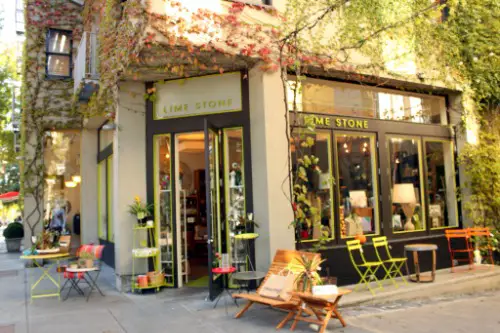
Healdsburg, a small town in Sonoma County, passed an ordinance in 2025 extending its chain store ban to a larger portion of downtown. The decision was made to preserve the town’s small-town charm and protect local businesses from the encroachment of large retailers. However, the move had an unintended effect: it sparked increased interest and support for the very chains it sought to exclude. Residents and visitors, intrigued by the restrictions, began to view the banned stores as desirable and exclusive.
The controversy surrounding the ban led to heightened public curiosity about the restricted retailers. Some businesses found ways to navigate the regulations, further intensifying public interest. The situation prompted a reevaluation of the policy’s effectiveness and its impact on local commerce. Ultimately, Healdsburg’s experience underscored the complexities of balancing regulation with consumer preferences.
5. Joseph, Oregon

In 2024, Joseph, a small town in Wallowa County, passed an ordinance banning “formula” businesses, effectively prohibiting chain stores like Dollar General from operating within city limits. This move was in response to community concerns over the proliferation of dollar stores in the area, which many felt threatened local businesses and the town’s unique character. The ban sparked a wave of support for local entrepreneurs, with several new independent shops opening in the downtown area. Residents embraced the change, leading to a revitalization of the local economy and a stronger sense of community pride.
The town’s efforts to limit chain stores inadvertently highlighted the appeal of the very businesses it sought to exclude. The controversy surrounding the ban drew attention to the issue, leading to increased public interest in the restricted retailers. Some residents and visitors began to view the banned stores as symbols of resistance against local regulations. The situation exemplified how attempts to regulate businesses can have unintended effects on consumer behavior and community dynamics.
6. Birmingham, Alabama
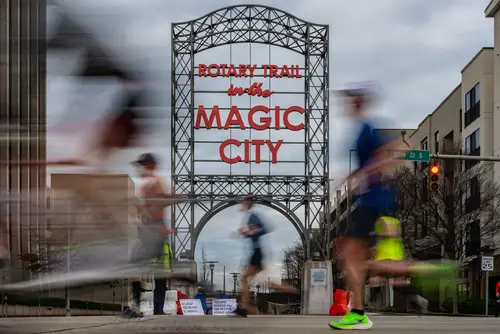
In 2019, Birmingham passed two laws restricting the opening of dollar stores in the city, aiming to encourage and help finance grocers and other retailers that sell fresh food. The intention was to promote healthier food options and support local businesses. However, the restrictions had an unintended consequence: they fueled a sense of exclusivity and desirability around the banned chains. Residents and nearby communities rallied behind the dollar stores, leading to increased foot traffic and sales.
Despite the restrictions, the demand for these retailers remained high, prompting the city to reconsider its stance. The situation highlighted the complexities of regulating retail establishments and the unpredictable nature of consumer behavior. The experience underscored the challenges of balancing public health objectives with economic considerations. Ultimately, Birmingham’s approach to regulating dollar stores prompted a reevaluation of its effectiveness and impact.
7. Plainview, Nebraska

Plainview, Nebraska, enacted laws restricting where dollar stores could open, aiming to protect local businesses and promote community development. The intention was to preserve the town’s unique character and support existing retailers. However, the restrictions had an unintended effect: they sparked increased interest and support for the very chains it sought to exclude. Residents and visitors, intrigued by the limitations, began to view the banned stores as desirable and exclusive.
The controversy surrounding the restrictions led to heightened public curiosity about the restricted retailers. Some businesses found ways to navigate the regulations, further intensifying public interest. The situation prompted a reevaluation of the policy’s effectiveness and its impact on local commerce. Ultimately, Plainview’s experience underscored the complexities of balancing regulation with consumer preferences.
8. Fort Worth, Texas

Fort Worth, Texas, passed laws restricting the opening of dollar stores in the city, aiming to protect local businesses and promote community development. The intention was to preserve the city’s unique character and support existing retailers. However, the restrictions had an unintended consequence: they fueled a sense of exclusivity and desirability around the banned chains. Residents and nearby communities rallied behind the dollar stores, leading to increased foot traffic and sales.
Despite the restrictions, the demand for these retailers remained high, prompting the city to reconsider its stance. The situation highlighted the complexities of regulating retail establishments and the unpredictable nature of consumer behavior. The experience underscored the challenges of balancing public health objectives with economic considerations. Ultimately, Fort Worth’s approach to regulating dollar stores prompted a reevaluation of its effectiveness and impact.
9. Kansas City, Missouri
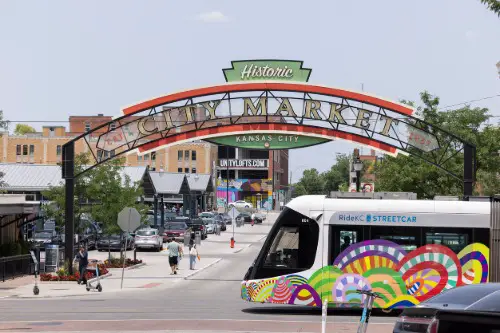
Kansas City, Missouri, enacted laws restricting where dollar stores could open, aiming to protect local businesses and promote community development. The intention was to preserve the city’s unique character and support existing retailers. However, the restrictions had an unintended effect: they sparked increased interest and support for the very chains it sought to exclude. Residents and visitors, intrigued by the limitations, began to view the banned stores as desirable and exclusive.
The controversy surrounding the restrictions led to heightened public curiosity about the restricted retailers. Some businesses found ways to navigate the regulations, further intensifying public interest. The situation prompted a reevaluation of the policy’s effectiveness and its impact on local commerce. Ultimately, Kansas City’s experience underscored the complexities of balancing regulation with consumer preferences.
10. Nottawa Township, Michigan
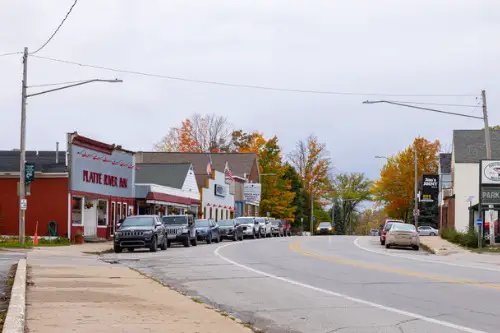
Nottawa Township, Michigan, initially voted against a zoning request from a developer for a Dollar General store, aiming to protect local businesses and preserve the area’s character. However, the developer sued the town, leading to a reversal of the decision and approval of the store. The legal battle and subsequent approval sparked public interest and support for the dollar store. Residents and visitors, intrigued by the controversy, began to view the store as a symbol of resilience and community spirit.
The situation highlighted the complexities of balancing regulation with economic development. Despite initial opposition, the presence of the dollar store provided residents with a new shopping option. The experience underscored the challenges of navigating legal and community dynamics in retail development. Ultimately, Nottawa Township’s experience prompted a reevaluation of its approach to zoning and retail establishment approvals.
11. Windermere, Florida
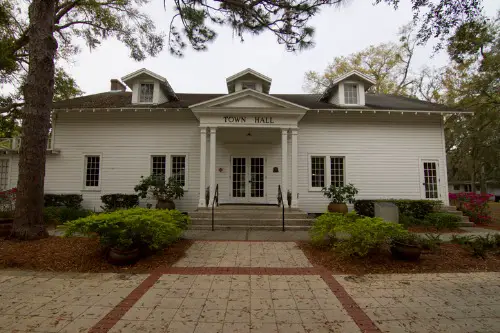
Windermere, Florida, enacted measures to protect its small-town feel by limiting the presence of chain stores. The intention was to preserve the town’s unique character and support local businesses. However, the restrictions had an unintended consequence: they fueled a sense of exclusivity and desirability around the banned chains. Residents and nearby communities rallied behind the restricted retailers, leading to increased interest and support.
Despite the limitations, the demand for these retailers remained high, prompting the town to reconsider its stance. The situation highlighted the complexities of regulating retail establishments and the unpredictable nature of consumer behavior. The experience underscored the challenges of balancing community identity with economic considerations. Ultimately, Windermere’s approach to regulating chain stores prompted a reevaluation of its effectiveness and impact.
12. Ashland, Oregon

Ashland, Oregon, enacted measures to protect its unique character by limiting the presence of chain stores. The intention was to preserve the town’s artistic and cultural identity and support local businesses. However, the restrictions had an unintended effect: they sparked increased interest and support for the very chains it sought to exclude. Residents and visitors, intrigued by the limitations, began to view the banned stores as desirable and exclusive.
The controversy surrounding the restrictions led to heightened public curiosity about the restricted retailers. Some businesses found ways to navigate the regulations, further intensifying public interest. The situation prompted a reevaluation of the policy’s effectiveness and its impact on local commerce. Ultimately, Ashland’s experience underscored the complexities of balancing regulation with consumer preferences.
13. Carmel-by-the-Sea, California
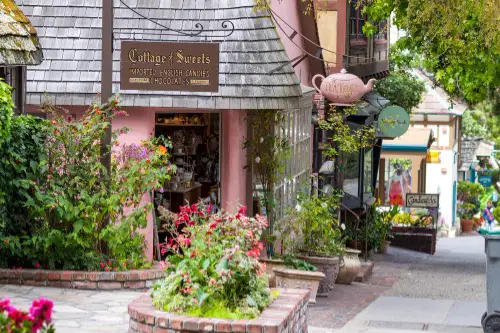
Carmel-by-the-Sea, California, has long limited chain stores to maintain its distinctive character. The intention was to preserve the town’s unique charm and support local businesses. However, the restrictions had an unintended consequence: they fueled a sense of exclusivity and desirability around the banned chains. Residents and nearby communities rallied behind the restricted retailers, leading to increased interest and support.
Despite the limitations, the demand for these retailers remained high, prompting the town to reconsider its stance. The situation highlighted the complexities of regulating retail establishments and the unpredictable nature of consumer behavior. The experience underscored the challenges of balancing community identity with economic considerations. Ultimately, Carmel-by-the-Sea’s approach to regulating chain stores prompted a reevaluation of its effectiveness and impact.
This post 13 U.S. Towns That Tried to Ban Chain Stores and Just Made People Love Them More was first published on American Charm.


